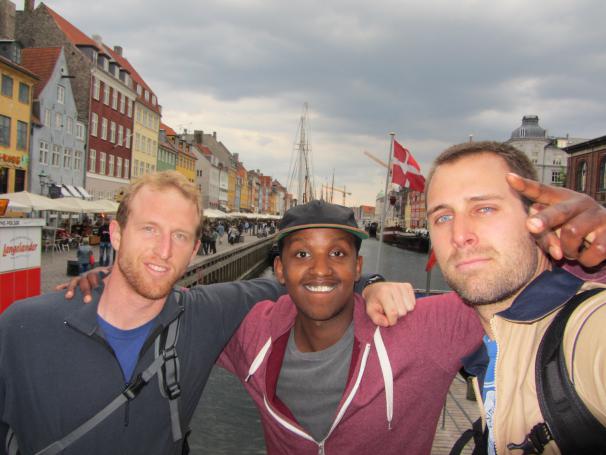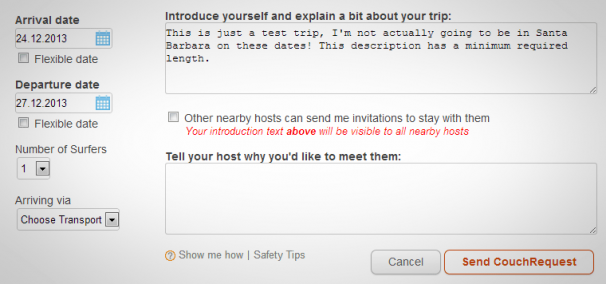
Surfing in Denmark!
on December 9, 2013
Now that you've narrowed down the number of potential hosts it's time to start reading profiles. This is perhaps the best thing you can do to help yourself get the most out of your Couchsurfing experience. Get to know people and seek out the best fits for you. Look for things that you know you will connect on. Look for reasons for them to be your new best friend and for you to be theirs. I can't stress enough that actually putting the time in and getting to know the people you hope to stay with will ensure that it is a rewarding experience.
Scroll through your couch search, read profile blurbs, and create new tabs for each host that might be a good fit. Then go through each one. Start by reading their couch information. Do they actually have a couch to offer? Are they less inclined to host your gender? If there aren't any obvious reasons to not send them a request, move to their general information. Do they actually respond to requests? When did they last log-in? Where? How old are they? What do they do? Is there a language barrier?
With every bit of information you get, try to gauge how much you'll have to talk about with this person. Have you ever worked in the same industry? Are you both learning a language? Read all the way through their profile, getting to know them along the way and try to gauge how easily you could form a strong connection. Then read some references left by their friends. What did they do together? How was the experience? If, by the end, you still think you'd hit it off, send a request.
When you go to send a request you get a small window with some options. Enter your planned dates and details. The trip description that you entered earlier will show up in the "Introduce yourself..." section, and below that you can write a message directed to that specific host.

It's time to tell your host why you'd like to meet them. This is your chance to show that you've put the time in to get to know them through their profile and explain why you think it would be mutually beneficial if you surfed their couch. Many hosts even ask that you include a specific phrase in your couch request to prove you’ve read their profile. Talk about your common interests, what you'll have to talk about, and interesting things you can do together. A well-crafted couch request will go a long way in finding you a host.
Once you've sent your requests, all you can do is wait for replies. Some users might reply right away and others might not reply at all. This is why it's important to have paid attention while reading profiles. You can know when and where someone's last login was and avoid wasting your time sending requests to people who can't possibly host.
When you start receiving replies you'll find that some places are much easier to secure a host than others. In my experience, smaller cities without much tourist traffic usually have quite a few users eager to host. People in these groups are less likely to have guests already and will probably be excited that someone's headed toward their corner of the world.
Changing the number of travelers in your group might also help your odds. It is certainly a higher risk to travel alone. However, from a host's perspective it's often much easier to accommodate one person instead of multiple. On the other hand, some hosts prefer small groups of travelers because the group dynamic is always interesting. Just another thing to think about when choosing how to travel and whose couch to request.
If you're having trouble finding a couch you might try seeking out CS users without much CS experience. They are often eager to host and also want to beef up their profile with some positive references. It might not go as smoothly as staying with someone who has surfers every week, but it can be interesting to learn about the surfing process together. However, make sure you use your common sense and consider taking a friend with you. With only a few references there is only so much you can learn about your potential host.
After your request has been accepted, you need to make plans to meet up. Some hosts are willing to come find you wherever you'll be arriving. Other hosts just give an address and directions. Either way, you should make sure you know how to get in touch with them in case things don't quite go as planned leading up to your arrival. It's a common courtesy to make sure that your host is up to date on exactly when you'll be arriving. It’s not unusual for plans to change when you’re dealing with unfamiliar transportation in foreign countries.

